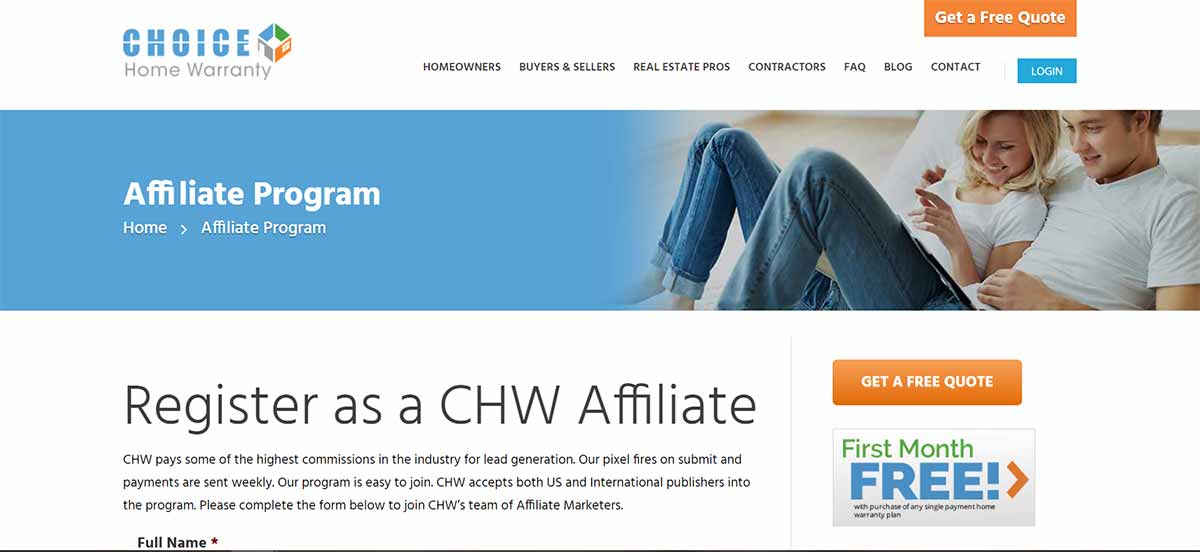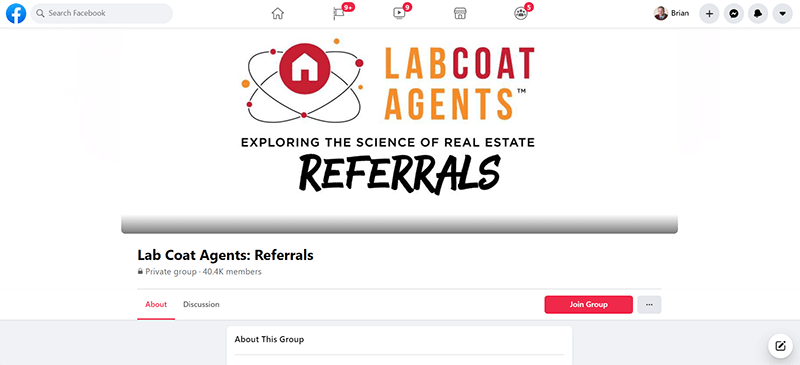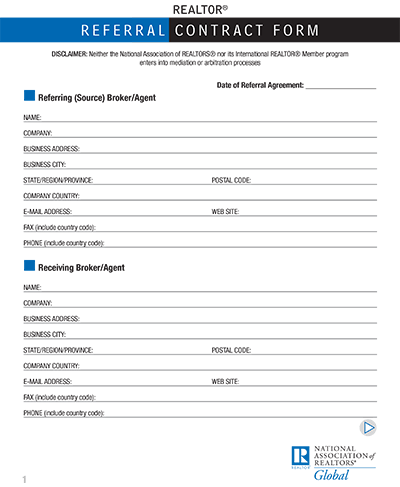Real Estate Referral Fee Forms and Rules
Despite all the talk about disruption and new models sweeping real estate, old-fashioned referrals are actually becoming more important to brokerages.
According to the 2020 NAR Profile of Home Buyers and Sellers, agent referrals were the 6th most common way a buyer found their agent (5% of transactions), and 5th most common way sellers found an agent (4% of transactions).
Most of these transactions likely included a referral fee between agents.
The best thing about building a referral-based business is that you don’t pay until you close!
What is a Referral Fee?
A referral happens when you pay a third party to a transaction an amount contingent on the completion of the transaction.
How is a referral fee different than buying leads?
Leads are not contingent on a sale. Referrals are.
When you purchase a lead from Zillow, for example, your payment to Zillow was not conditional on a transaction closing. That money is paid. You get the lead. And whether or not you close is not Zillow’s problem.
You can pay for leads and marketing services. Just so long as it is not contingent.
What is a “Standard” Referral Fee for Realtors?
There is no “standard” fee for real estate referrals and fees are negotiable, but 25% is a common referral fee amount.
For referral business that comes as part of a corporate relationship like relocation, Rocket Home Loans, Zillow Flex, or Realtor.com/Opcity, referral fees are often higher. 30-50% of the transaction is common.
Many of these programs, especially lender programs, also might feature buyer rebates, so a significant portion of the referral fee is actually being rebated to the buyer.
Who Can Earn Referral Fees?
Some states permit referral fees. For example, California allows for “finders fees”.
But most states restrict referral fees exclusively to licensed real estate agents.
For example, here is Texas’s law on real estate referral fees:
§535.20 Referrals from Unlicensed Persons
Referring a prospective buyer, seller, landlord, or tenant to another person in connection with a proposed real estate transaction is an act requiring the person making the referral to be licensed if the referral is made with the expectation of receiving valuable consideration. For the purposes of this section, the term “valuable consideration” includes but is not limited to: money; gifts of merchandise having a retail value greater than $50; rent bonuses; and discounts.
A person is not required to be licensed as a real estate broker or salesperson if all of the following conditions are met.
1. The person is engaged in the business of selling goods or services to the public.
2. The person sells goods or services to a real estate license holder who intends to offer the goods or services as an inducement to potential buyers, sellers, landlords or tenants.
3. After selling the goods or services to the real estate license holder, the person refers the person’s customers to the real estate license holder.
4. The payment to the person for the goods or services is not contingent upon the consummation of a real estate transaction by the person’s customers.
Chapter 531 Canons of Professional Ethics and Conduct
Basically, you can give someone without a license a gift worth no more than $50. And that’s it. You can’t just pay your clients and sphere of influence 10% of every transaction they refer you. You can give them a $50 gift. Not much!
Lots of folks have tried to get around the prohibitions on referral fees. I’ve heard of unlicensed investors asking for “marketing fees”, for example. That clearly violates the “contingent upon the consummation of a real estate transaction” part of the law and would be illegal.
Why are referrals limited to licensed agents?
I don’t know.
The cynic in me thinks it is likely due to special interest lobbying of state government by NAR, state associations, and the broker community to restrict this business model to licensees, who are overwhelmingly Realtors. I’m sure there is an argument about consumer protection (a grab bag excuse for just about any regulation, including licensing itself), but I doubt it’s a persuasive one.
Allowing agents to pay a referral fee to unlicensed people and marketers would allow an agent or broker to get more innovative with their lead generation strategies.
Zillow and Realtor.com have gotten around these restrictions for their own referral business by becoming licensed brokers in all 50 states.
Referrals vs Rebates
I often see agents confusing restrictions on referrals and apply those to rebates.
A rebate is when you credit your client a portion of your commission, not a third-party source. There is nothing wrong with this and you can do it all day if you like. You can rebate your entire commission! Though as a general business practice I would advise against it.
Often rebates might be mandatory if you are participating in a lender referral program. You pay the lender a referral, a portion of which is then rebated to the buyer. The lender uses that rebate as bait to get buyers participation, but take it from your referral fee. USAA Movers Advantage, now defunct, utilized this model for example.
Referrals from Vendors

What about when agents earn referral income from other third party vendors like home warranty companies?
That is permissible, so long as the real estate agent discloses it to their clients in writing. Keep in mind NAR’s Code of Ethics, Article 6:
REALTORS® shall not accept any commission, rebate, or profit on expenditures made for their client, without the client’s knowledge and consent.
When recommending real estate products or services (e.g., homeowner’s insurance, warranty programs, mortgage financing, title insurance, etc.), REALTORS® shall disclose to the client or customer to whom the recommendation is made any financial benefits or fees, other than real estate referral fees, the REALTOR® or REALTOR®’s firm may receive as a direct result of such recommendation. (Amended 1/99) [listen]
Standard of Practice 6-1
REALTORS® shall not recommend or suggest to a client or a customer the use of services of another organization or business entity in which they have a direct interest without disclosing such interest at the time of the recommendation or suggestion. (Amended 5/88)
NAR Code of Ethics and Standards of Practice
Some example home warranty referral programs are:
Referral Fee Agreement
There is not a promulgated form for a real estate referral agreement, at least not in Texas. As primaries to the contracts, however, brokers can draft their own referral fee agreements. Or, of course, hire an attorney to put together a standard form.
But NAR has helpfully created a form that referring agents can use here!
Pros and Cons of the Referral Model
Pros
- No Out of Pocket Costs. Referrals involve no out of pocket costs until you’re actually collecting a check. Talk about leading with revenue!
- Aligned Incentives. Not only do you only pay when it closes, but referrals align your incentives with the referring source. They only get paid if the leads they give you close and actually make you money! They’re incentivized to only give you highly motivated, high-quality leads. You are both on the same page of turning a lead into a transaction.
- Focus on the Customer. If real estate lead generation annoys you and you just want to help home buyers and sellers, earning leads in exchange for referral fees can be a win-win for your lifestyle. Don’t worry about digital marketing, Facebook ads, PPC, complicated funnels, or the race to qualify leads. Just be a great Realtor!
- Exclusive Leads. There’s only one closing. One commission. It doesn’t get much more exclusive than that. These also often are warm handoffs. No race for the fastest phone call to win the lead.
Cons
- Small Fish Need Not Apply. Aligning incentives works both ways. Referral partners are very keen that you get their leads to closing, or they don’t get paid! They have zero tolerance for failing to call or nurture the leads they’re giving you. The result is that they only want to work with good agents. The best agents. Most agent and referral companies are selective about which agents and brokerages they work with and newbies are often out of luck (though there are a few exceptions).
- Smaller Chunk of the Pie. The convenience of deferring payment also comes at a cost. Referral fees tend to be a chunky portion of the commission. If you are great at converting leads and follow up, you’ll probably achieve a higher ROI paying for leads upfront and keep the entire commission to yourself.
- Strings Attached. Referral companies in particular may offer referrals with strings attached. There may be rules about who “owns” the potential buyer or seller for future marketing purposes. Or you may need to use particular transaction software and keep up with reporting requirements.
How to Build Agent Referral Relationships
Facebook Referral Groups

There are lots of groups on Facebook for finding or giving a real estate agent referral, like the Lab Coat Agents referral group.
Look at some of the top Facebook groups for Realtors for more sources of both getting information and building connections. Be mindful, though, most of these groups discourage asking or offering referrals. Instead, they may have a separate group designed for those kinds of connections.
Referral Networks

There are several referral networks like Leading Real Estate Companies of the World (LeadingRE). LeadingRE is a selective network that screens for top real estate professionals, but other networks are more accessible for new and growing agents.
Related, local small business meetup groups like BNI might be a good place to network and make connections if they have openings for real estate agents.
Calling Office Cold Leads
I talked about one intriguing lead generation strategy featuring referrals in my article about unique marketing ideas. I called it “partnering with an aged database”.
Chances are lots of agents in your office have a database of leads they’ve neglected. Leads they’ve bought from Zillow, or followed up with for a few months before losing touch.
Offer to “purchase” these lists from agents by offering them a referral for any that you contact and successfully close. Any old lead that they aren’t doing anything with! Write up a referral form, attach an excel with their info, and get to work on following up!
This might work really well for newer agents as it’s free and you can quickly generate a large list of contacts to begin nurturing and practicing your follow-up skills.
Real Estate Referral Companies

Referral Exchange
Referral Exchange is the industry leader in referral networks. Joining requires a one-time fee after which you can add clients as referrals to their network. Once you’ve successfully referred a few clients, you can then unlock the ability to receive referral leads.

Homelight
Homelight is a real estate software company focused on agent and investor matching. They have a referral program for participating agents, connecting them with leads, while supporting the transactions with their platform software.
Zillow Flex and Realtor.com

Realtor.com acquired OpCity, a lead generation that focused on referrals, and incorporated it into their business model. Zillow followed suit and launched their own Zillow Flex program for select premier agents.
Instead of buying leads from Realtor.com or Zillow, top agents can participate in their referral programs. Pay nothing up front, only when you close!
Others
- Effective Agents
Conclusion
If you’ve been in the real estate business more than a year or two, then chances are you’ve worked a few referrals. Be sure you are following the rules.
And don’t forget how lucrative referrals can be. Encourage and reward other agents you’ve partnered with who are helping your business. Be mindful to reciprocate with your own referrals, and send them a thank you card!



